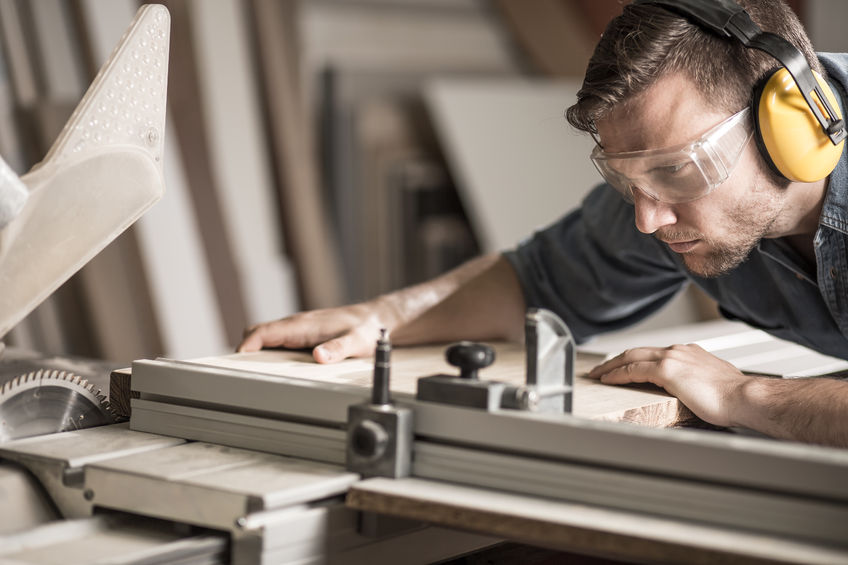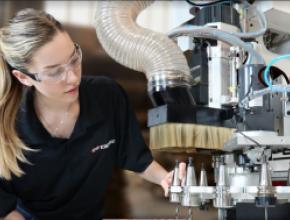BALTIMORE - There are communities in which women and non-binary craftspeople can train in woodworking and have a space to create their own work.
By cultivating skills within this demographic, the pool of woodworking laborers can be expanded as the lack of skilled and unskilled labor is among the most dominant issues plaguing the wood manufacturing industry.
One such community, A Workshop of Our Own (WOO) says its mission is to create a professional woodworking environment which cultivates and promotes the careers of women and non-binary craftspeople in the field. Its mission aims to amplify the voices of this demographic in the industry as well as be a collaborative space for professionals, train all skill levels in a supportive environment, and provide apprenticeship opportunities.
The company’s founder, Sarah Marriage was formerly an engineer while juggling furniture-making before dedicating herself to the craft. In 2013, Marriage won a spot at a two-year furniture-making program at the College of the Redwoods in California. Upon completing the program, Marriage migrated back to the East Coast to work in a New Jersey shop run by another fine-art furniture-maker, where she was the only woman in the shop.

After being financed by a $25,000 fellowship in 2016, Marriage established WOO in Baltimore, Maryland in an attempt provide a more collectively creative environment like the one she experienced while in school. In what is often considered a masculine domain, WOO gives girls, women, and non-binary people a space to develop skills with the goal of building self-confidence in the construction process.
“There’s something magical about being all women in a woodshop,” Marriage says. “It’s pretty powerful to walk into a room where people are working and it’s only women or non-binary people.”

WOO goes beyond the pink-tool trend, however and helps woodshop members in understanding the entire creative process all the way from the seed to a completed project. Members aren’t immediately jumping into it with equipment, but they are also learning about how the trees are growing and how to harvest them.
Sarah Elder, a WOO graduate, says that woodworking is what brought her to the workshop, but explains that the way people are personally invested in the shop has played a big part in keeping her actively involved. According to Elder, it was a level of collaboration and cooperation that she had never had before.
Additionally, the workshop has opened up economic doors for some of its members. Before starting at WOO, Elder worked as a museum docent, but now she works with a woman-owned contracting company that specializes in bathrooms and kitchens. According to Elder, the business started because the owner realized there was a demand for women contractors.
WOO isn’t the only organization committed to empowering non-male woodworkers in the industry.
Women’s Woodshop, in Minneapolis, Minnesota, is another woodworking space aimed at female and non-binary people. Additionally,
The Hammerstone School in upstate New York teaches women carpentry skills, while summer building camps such as
Girls Garage and
Girls Build are aimed at teaching young girls industry skills.
“The work we make today stands on the shoulders of those who made before us, of those who are making around us,” says Marriage. “We need more women who are practicing furniture makers. We need to cultivate a diversity of voices in our field. And we need to willfully create dedicated workshops to support and champion these voices.”











Have something to say? Share your thoughts with us in the comments below.